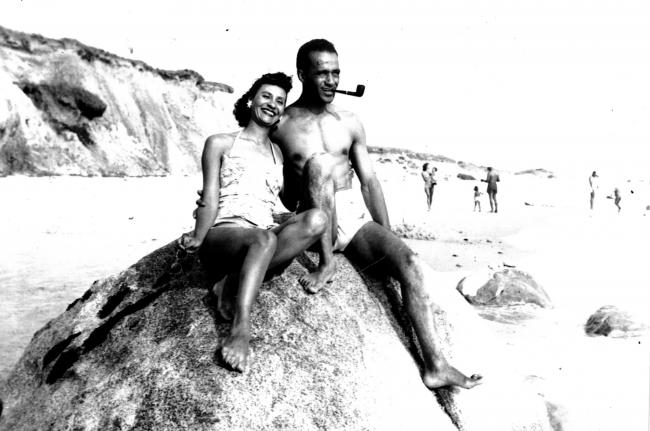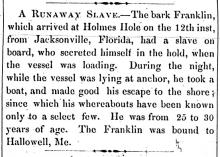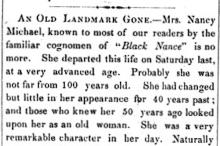In the 1920s and ’30s, black families could not buy property in Edgartown. And although Oak Bluffs was a gathering place for black professionals back to the 19th century, their children, home from college, were seldom able to work as clerks in local shops.
When the civil rights movement spread across America in the 1960s, the Vineyard was separate in many ways. The black community here was prosperous and thriving, the regional high school was integrated and race relations were cordial.
The demands for social justice that met violent resistance in places like Montgomery and Selma did not seem as urgent here, where many accomplished blacks came to enjoy the summer and socialize, and where white exclusion was covered with the patina of New England tradition.
But social history is not a collection of facts, it is the threads of many lives moving through time. This is story of two women living on Martha’s Vineyard, one white and one black - two stands of remembrance.
Mary Holman first came to Martha’s Vineyard for summers in the late 1920s when she was still an undergraduate in social work at Boston University. She worked as a maid for a white family.
“There were only certain jobs that blacks could get. They didn’t hire you in stores; there were only jobs as maids, servants as they called it,” Ms. Holman said in conversation with the Gazette this week.
While most beaches, restaurants and places of amusement in Oak Bluffs were open to everyone, Edgartown remained exclusive, she remembered. The only black people in town were servants. And because restaurants and clubs were closed to them, a house across from the graveyard was established so black people could socialize and relax in town on days off. The Open Door Club, as it was called, was willed by a white woman to her servants for a gathering place.
“It was organized for maids and chauffeurs by the people who hired them. The madams were invited, everyone was invited and the employers furnished food for the affair,” Ms. Holman remembered. It was one of the genteel occasions of the Edgartown summer season.
“After the assassination of President Kennedy things began to change in the South and here too,” Ms. Holman said.
Nancy Whiting came to the Island in the late 1950s with her children. As a graduate of Antioch College, she had learned that involvement in the community for the greater good was part of her responsibility. She was an original member of the Island chapter of the National Association of the Advancement of Colored People.
“We reorganized the night Kennedy was assassinated. It was such an appalling time. There was a chapter here in the 1930s and some of those people were still here. You see, you had to have a certain number of members to be viable. We struggled for some time to get enough people,” Mrs. Whiting said.
Among the early members were Dr. Milton Mazer and Virginia Mazer, Polly Murphy, Peggy Lilienthal, Audry Tankard, Roscoe Heathman and Toby and Lucille Dorsey. And the group was led by the energetic and activist Episcopal minister, the Rev. Henry L. Bird.
“Henry and Paul Chapman had been to jail; they were locked up with members of the Southern Christian Leadership Conference. We followed the Montgomery Bus strike and Martin Luther King and were really turned on,” she remembered.
In 1964 Mr. Bird organized a trip to Williamston, N.C., to support an economic boycott sponsored by the Williamston Baptist Church.
“We went down that spring taking a load of clothes, books and food. There was a boycott to protest unfair wages at a peanut factory in town,” Mrs. Whiting said. She was arrested and jailed for one night along with Polly Murphy, Peggy Lilienthal, Virginia Mazer and Nancy Smith for picketing outside the Williamston Sears and Roebuck.
They later sponsored a trip for a group from Williamston to visit the Island. There was an effort under way to integrate the Williamston schools and they hoped to give the young people a chance to feel more comfortable with integration.
Martha’s Vineyard welcomed them, but some people felt some of Mr. Bird’s other ideas went too far.
“Things were getting very provocative and built up. I can still see Henry - it got to the point he thought it was a good idea to push for a black mannequin in Hall’s Dry Goods in Edgartown,” Mrs. Whiting remembered.
“The Island was secure and insular. Some members of the black community didn’t like the unrest. It made them angry,” she said.
In January 1964 the Rev. Mr. Bird and the NAACP organized a freedom rally at the Edgartown Baptist Church to honor a delegation from Williamston. Paul Chapman, a Baptist layman, read the words of a song, angering many people on the Island:
“If you miss me in the library and you don’t find me nowhere, come on over to the reading room and I’ll be reading right there.
“If you miss me at the state beach and you don’t find me nowhere, come on over to the Chappy beach and I’ll be swimming right there.”
The song went on to contrast the Oak Bluffs beach and East Chop Beach, the coffee shop and the Yacht Club, Oak Bluffs and Mink Meadows, Shearer’s Cottage and The Cedars.
Following the incident Henry Hough wrote:
“Paul Chapman, author of the song, spoke of places ‘of public accommodation and recreation,’ nut the clubs are not in this category, nor are they sufficiently alike in purpose and character to be grouped together. The major mistake, we believe, was to allow anyone who cared to do so to represent that a right of privacy is being threated by the civil rights movement, and it is not.”
Henry Bird was later asked to leave the church because the congregation felt he spent too much time pursuing political causes and was unable to devote enough attention to the parish, Mrs. Whiting recalled. St. Andrew’s in Edgartown and Grace Church in Vineyard Haven became separate parishes in that period.
Miss Holman bought a house with her brother on School street in Oak Bluffs in the 1930s and she came to the Vineyard during vacations from her job as a case worker for the Massachusetts Society for the Prevention of Cruelty to Children. She retired to the Island in 1979. She remembers Shearer’s Cottage, and Oak Bluffs social club for black professionals, and she worked in the kitchen of a restaurant called Pollard’s in the highlands where she couldn’t eat because of her race.
“But under Johnson with the civil rights act these things began to change,” she said.
She bought her home in Oak Bluffs because of the community there and because the area was not restricted.
“People here treated you fine,” she said. But her memory can still see the barriers clearly.
“But as I say, these are things as I remember them,” Mrs. Holman said.









Comments